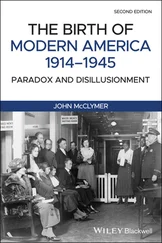*
She only has to endure.
*
I must only endure, thinks Prisoner 730004, sitting on her thin bed, and rubbing her eyes. They have drugged her again, and everything is hazy and disturbing; her thoughts have been chemically addled, impaired by their drugs. She despises them, for invading her brain in this way, for pretending this is a cure. And she sits on her thin bed, not really caring to consider the time, because she has so little to gain from the dawn.
*
Not many more hours, thinks Michael, sitting on his sofa, having glanced too recently at the clock to permit himself to glance again. Today I will see her, after many years, and she will be much changed. She will be lying in her bed. The bed she lay in with my father, who is now dead. And when I have crouched beside her, I will be free to return to this solitary life, to do anything, to live or die, however I please. Only — and now he cannot stop himself, he looks at the clock — a few more hours, and it will be over.
*
Only a few more hours, says the midwife quietly, to Brigid — seeing that she is still awake — and I will examine you again.
*
In his study, Robert von Lucius is finishing a letter.
*
Dear Professor Wilson, it is early in the morning, and I find I cannot sleep. I have been so concerned about the case of Professor Semmelweis. You are a sage and certain man, and I hope you can tell me the answer to this question: what does it mean if Professor Semmelweis is right? I perceive that even if this question is answered it will not necessarily save him from his rages or determine how he should be treated — though that asylum is no place for him, of that I am sure. But what does it mean for the medical profession, for mothers who give birth in our modern hospitals, if Professor Semmelweis is correct, and if he is generally ignored? And what does it mean for our notion of sagacity, of the temperance and fairness of our sciences, if he is dismissed so roundly, and it transpires he was correct all along? Surely the case must be reopened? Surely someone must conduct a study?
*
For myself, I find that I must act. As soon as morning comes I will go to the asylum, and talk more to Professor Semmelweis. I feel I must champion this theory because if there is the slightest vestige of truth in it, if adhering to its precepts might save the life of a single woman, then we must — someone must — bring it to general notice again. I will go to the asylum and make sure I understand very precisely what Professor Semmelweis has proposed. If only my library were a little more extensive, it would house a copy of his book. But I will procure one as soon as I can. However, it is more important to talk to the originator himself, as I am fortunate enough to have personal access to him.
*
Professor Wilson, I will write to you again very soon but in the interim I beg you — so far as your studies and work allow you — to make enquiries about the reputation of this theory in your own country, and to advise me of your opinion on the matter.
Yours ever,
Robert von Lucius.
*
Now Brigid notices that through the window dawn has broken, and the sky has turned pale blue. Robert von Lucius thinks, at last the morning, and now he can act. Prisoner 730004 sees the light at the high window changing, and understands the day has come. And Michael thinks at least now he can rise — he has recently made one last attempt to sleep, curled up on his sofa, but hopelessly alert and stricken by nerves — and he throws off the blanket and moves towards the kitchen. There, he switches on the kettle and he cuts a slice of bread. He puts that in the toaster and waits for the kettle to boil. Then he pours water into a cup and when the toast is ready he spreads it with butter and jam. Normality, he thinks. All this calms him slightly, though his hands are shaking.
*
Now I must act, thinks Robert von Lucius, as he hurries into the breakfast room. He pours himself some coffee and takes a bite of a roll. The newspaper has been neatly arranged beside his plate and he glances through it. It is full of news he cannot digest entirely, something about the Emperor on his annual retreat. There has been a scandal at court. Robert von Lucius drinks his coffee down, and feels the warmth in his belly.
*
Brigid finds she is hungry, her stomach growling a reproach, and she asks the midwife if she can have some toast. But the midwife says they must wait until the doctors have assessed her. ‘There may be the need for surgical intervention,’ she says, and Brigid feels only disbelief. On the mattress in the corner Patrick is stirring. When he turns towards her, she sees his eyes are bloodshot. He looks tired and as if he hasn’t slept at all. But she must look far worse, she thinks, ravaged internally and still awaiting the final act.
*
Prisoner 730004 is given a bowl of nutri-meal, which she cannot eat. ‘Am I to be moved today?’ she says to the guard, but he doesn’t answer. She has been trying not to think of her fellow islanders, in order that they may stay free of her misfortune and thereby happy, but now she allows herself to think of Oscar, and she hopes he is free, and she hopes that Birgitta and her son are not caught. She hopes they have fled into the mountains on the mainland, or the remaining forests along the coast. There is still land which no one uses, vast tracts of unusable land, of no interest to the Protectors. She hopes they have found the guides there, and can live quietly. Or die quietly, together, mother and son. And now Prisoner 730004 succumbs to tears, and she sits there for a time with her head in her hands, weeping as she has not in years, perhaps she has never wept in this abandoned way, because she thinks there is no real hope, not for her and perhaps not for them either.
*
This will pass, she thinks, but that does not console her.
*
Michael holds the phone to his ear, but Sally will not answer. He wants to tell her he cannot come. He must go to the studio, find her there, explain that he cannot speak on the radio. He will make his excuses and then he will catch a train. So he drinks his tea and finishes his toast. Beyond his window, London is rising into life. The streets are filling with cars. The traffic moves, slowly in the morning sun. In his flat, high above it all, Michael washes his plate and leaves his cup in the sink. He looks around his spartan room and does not know what he should take with him. So he takes nothing, except his wallet. He dresses in his suit, which looks a little shabby this morning. He was too drunk to hang it up the previous night, and now it is lightly wrinkled, the collar crooked. It doesn’t matter, he thinks. His mother will scarcely notice him.
At the door he turns and surveys his flat, as if recording this ordinary scene: the coffee table strewn with newspapers, the sofa cushions flattened by his weight, the bed unmade in the adjoining room. At this moment Michael stands, in perfect ignorance of the future. He has no sense of foreboding. He puts the keys in his pocket and walks along the corridor to the lift. He presses the button and waits for the lift to ascend.
*
It is unfortunate, the midwife has told them, but they must wait a little longer. The doctors are on the ward, but they have a couple of other women to assess first. They are called women, not patients, Brigid notes, because of course they are not ill. Swollen and weary, mad with pain or shuddering as the epidural dulls their nerves, but they are not ill. This state is perfectly natural; its conclusion is the birth. Whatever happens, she thinks, it was meant to happen. She is wondering if this is true, as Patrick says to her, ‘Is there anything you need?’
‘I’m just so hungry,’ she says. Patrick looks down at his empty plate. He has — before Brigid’s eyes — consumed two pieces of toast, and drunk a cup of tea. Guiltily, he says, ‘Hopefully you’ll be able to eat something soon.’
Читать дальше












